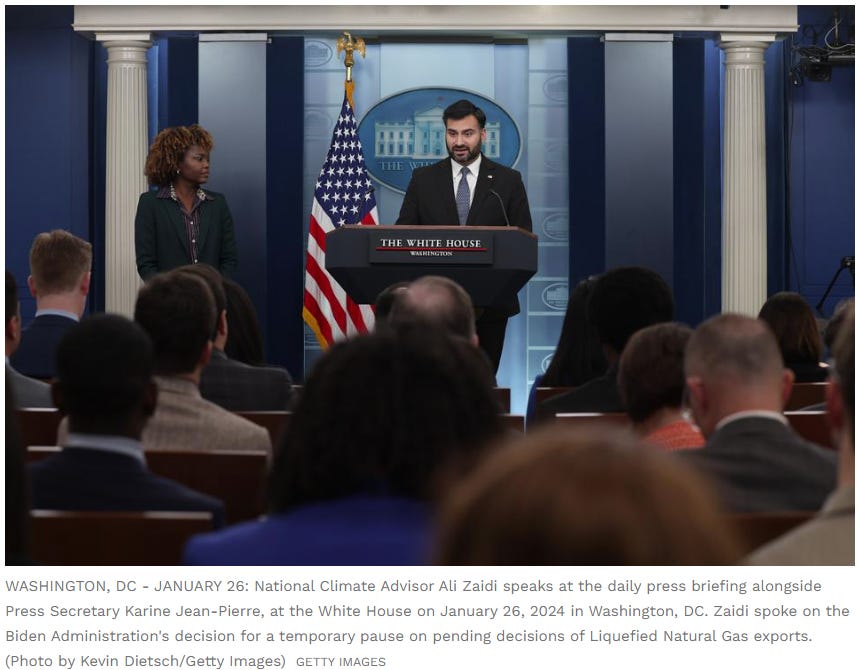When the White House invoked its “pause” in permitting of proposed new infrastructure for exporting liquefied natural gas (LNG) in January, many expressed concerns the move would reduce global confidence in the US industry as a reliable provider. Another concern expressed at the time and since was that Vladimir Putin and Russia would be a major beneficiary, along with other gas-exporting, non-allied nations like Qatar and Algeria.
Qatar responded within a month, announcing a massive expansion as part of a plan to gain control of as much as 25 percent of the global market by 2030 in late February. Likewise, Algeria has announced a series of expansions and takeaway contracts in its own LNG business since January.
Now comes news that, for the first time since mid-2022, Russian exports of natural gas into Europe exceeded those from the US. The Financial Times reports that Russian gas, imported into Europe mainly via pipeline, supplied 15 percent of the EU market during May, compared to 14 percent coming into the continent from the US on LNG tankers.
FT attributes the May numbers to one-off factors like the temporary shutting-in of one large export facility, which no doubt had some impact. But American LNG supplied 21 percent of the European market for natural gas in January and has dropped steadily every month since the Biden pause was invoked. It is clear U.S. policy is impacting Europe’s energy supply and, further, their security.
“It’s striking to see the market share of Russian gas and [liquefied natural gas] inch higher in Europe after all we have been through, and all the efforts made to decouple and de-risk energy supply,” said Tom Marzec-Manser, head of gas analytics at consultancy ICIS.
Keep reading with a 7-day free trial
Subscribe to Energy Transition Absurdities to keep reading this post and get 7 days of free access to the full post archives.




